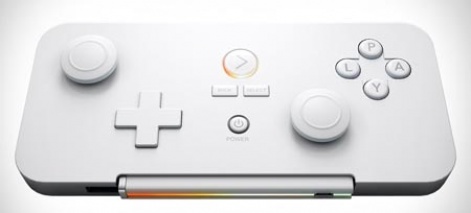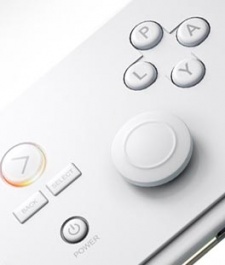At least, that's what I'm calling the new wave of gaming devices, which combine the dynamic power of mobile computing with the physical controls of the console joypad.
Nvidia's Project Shield got the headlines at the start of the week, only to be over-powered - and hopefully over-priced - by Razer's Edge Windows 8 gaming tablet.
But these are merely examples of a trend that's been ongoing for years.
Disruption ahoy
Even before Ouya's Kickstarter success in July 2012, Qualcomm attempted something similar with the Zeebo console in 2009, which was based on the original Google G1 phone from HTC.
Its failure and attempted reinvention as an educational device for emerging markets proved how hard it is to crack this market. Zeebo had a lot more resources than the $8.5 million Ouya raised for its Android- based console too.
Nevertheless, what's significant about the rise of the 'un-console' is the opportunity it presents for so many companies to cheaply leverage the technical disruption, and the audience interest, for their own purposes.
And that's the deal with UK company PlayJam, which prior to CES 2013's revelations looked like it would be grabbing all the headlines with its GameStick project.
Stick it in
Somewhat overshadowed by Nvidia and Razer's efforts now, GameStick combines PlayJam's expertise in running an Android-based gaming service for smart TVs, with the sort of consumer-facing hardware options we now expect from an 'un-console'.
Simply put, it's a fairly standard dual-stick controller plus a USB-sized stick (the un-console itself), which plugs into the HDMI slot of your TV.
One reason this is required is smart TVs are built with GPUs that are designed to decode video streams not run games, so as well as providing other services such as wifi etc, the stick provides required processing power.
The result is system that hardware-spec-wise at least gives you better performance than an iPad 2, priced at $79 (plus $15 for postage if you're outside North America).
Games will be provided online through the PlayJam-curated store, which will offer standard Android games that have been optimised for use with the controller.
Know your limits
PlayJam's chief marketing officer Anthony Johnson remains circumspect about the company's goals, however.
"We wanted to raise $100,000 [the initial funding target] to go into full production to manufacture GameSticks for the Kickstarter backers," he explains.
After a week, the campaign has raised over $270,000 meaning the initial production run will have to be seriously expanded, but as yet there's no expectation that the Kickstarter campaign will directly blossom into a retail product.
It might kickstart one though.

"We have been approached by a number of companies who have expressed an interest in taking it to retail. Certainly, we could white label the technology if someone wanted to license it," Johnson says.
There's also what he calls 'an update path', which would result in a Mark II product, but this is "years off".
The big picture
But, despite the interest in GameStick, the project remains a small part of what PlayJam is all about.
Relaunched three years ago, its business is building and operating an Android-based gaming platform for smart TVs. Indeed, during 2012 it signed up many of the key TV OEMs, giving it access to a potential audience of over 50 million living rooms.
"We want to bring affordable games to the mass TV audience. We're focused on the distribution of games on smart TVs, and that's how GameStick came about," Johnson explains.
As well as providing the hardware required for more complex games, it also gets around the other problem with smart TV gaming - having to use the TV remote as a controller.
"But we're not looking to replace five minutes of Angry Bird on the train," he adds. "This is about a 10 foot experience on a 50-inch screen."
You can back the Kickstarter project until the end of January here.





















